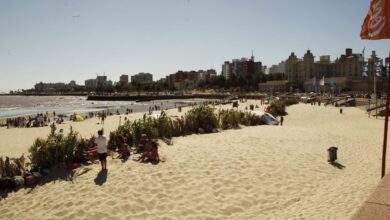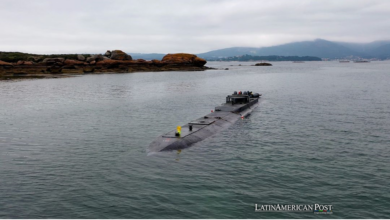The Amazon produces more pollution than oxygen and more environmental news
Finish your week with the most relevant information on the environment .

These were the most relevant environmental news of this week. Photo: Pexels
LatinAmerican Post | Vanesa López Romero
Listen to this article
Leer en español: El Amazonas produce más contaminación que oxígeno y más noticias medioambientales
Trawling releases around 1 billion tonnes of CO2 annually
A study carried out by the National Geographic Society concluded that trawling produces as much carbon dioxide as air travel . Although this research is preliminary, it is the first time that scientists and experts make an approximation to the amount of CO2 released by this practice. This gas, known as greenhouse gas, has been trapped in the seabed for thousands of years, and with trawling, which also damages the ocean floor, it is released and accumulates in the atmosphere, contributing in large part to global warming. .
PESCA Y ECOLOGÍA
La pesca de arrastre no solo destruye los ecosistemas > también libera enormes emisiones de CO2Está abriendo el grifo del sumidero de carbono más grande de la Tierra https://t.co/jiy5mK4hQM via @vistaalmar #Ecología #Oceanografía pic.twitter.com/mcNKPXoV4n
— CRCiencia (@CRCiencia) March 22, 2021
The research was led by Enric Sala, marine biologist and resident explorer of the National Geographic Society, and it was attended by around 25 experts from different parts of the world and was published in the journal Nature. In addition, he was not only in charge of giving an estimate of the aforementioned, but also seeks to show how nations can stand up to the climate crisis and the loss of marine wildlife , focusing on the possibility of creating protection areas where trawling is not allowed, as this would not only allow CO2 not to be released in these areas, but also help sequester the gas already released .
Also Read: Is Fossil Fuel Industry Advertising Misleading?
Feeding cows with seaweed would reduce their methane emissions by 82%
The consumption of beef is one of the practices that produce more air pollution and greenhouse gases, since the raising of cows that are consumed around the world is not sustainable, not even in the land where they are raised (this is usually deforested), also because the food they are given. However, a recent study published in Plos One Research and led by Ermias Kebrab, revealed that if the cows were fed with seaweed, the methane they produce would be reduced by 82% and the effects would be seen after a year.
CRISIS CLIMÁTICA
Dar de comer algas marinas a las vacas podría reducir sus emisiones de metano en un 82%El sector ganadero es el responsable de la emisión del 14,5% de los gases de efecto invernadero https://t.co/SIwaXBzsBR via @NiusDiario #Climatología #Biología pic.twitter.com/e7pmZ4jMMr
— CRCiencia (@CRCiencia) March 18, 2021
Methane is a gas produced by these animals during their digestion process, and although it is similar, it has a shorter life in the atmosphere compared to carbon dioxide, it produces 30 times more heat than carbon dioxide, making the estimate higher. of greenhouse gas.
The experts who carried out the information say that there is still much work to be done, but that these initial results are promising to create a more sustainable path towards reducing emissions that occur in the meat industry and contribute to global warming.
The Amazon could produce more pollution than oxygen
A study supported by the National Geographic Society and published in Frontiers in Forests and Global Change suggests that the Amazon currently produces more greenhouse gases from humans than oxygen . More than thirty scientists carried out the research, and came to the conclusion that the largest tropical forest in the world, and that it is also known as the "lung of the world" due to its great production of oxygen, has been so violated by different industries and sectors, that their capacity to absorb carbon dioxide has been extremely reduced.
Los bosques del Amazonas, de pulmón del planeta a fuente de calentamiento global – https://t.co/maajGdlF4k pic.twitter.com/VksqJOaO3p
— Info Uno Oficial (@InfoUnoOficial) March 23, 2021
According to the research, the biggest problem is forest clearing, as it interferes with the absorption of carbon, and by bringing the data to a broader scale it can be seen that as a whole, the Amazon intervened by human, is contributing to global warming, when it should be a territory that helps to avoid it.



